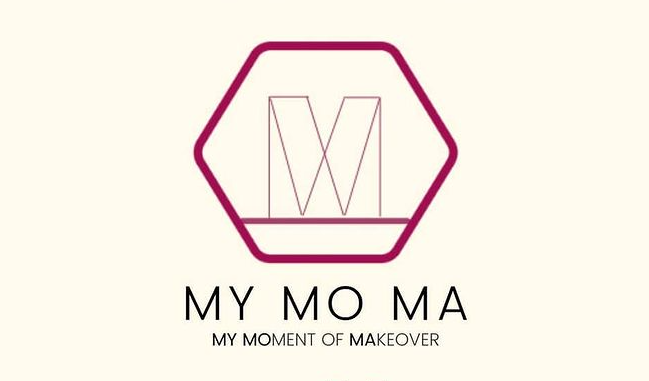MyMoMa
Tvisha Tuli, a final year student at SSCBS, talks about the Indian startup ecosystem, women run businesses including her own, and shares interesting insights about her nascent venture MyMoMa’s journey in her conversation with The CBS Post.
- What were your very initial steps before setting up MyMoma? Getting it registered, looking out for people with similar interests, etc. How did you tackle the ordeals that came in your way?
The world of startups is a violent one. The theories of ‘survival of the fittest’ and smooth seas never make good sailors fit rather well with the world of startups. There are 150 million startups in the world today with 50 million new startups launching every year. On average, there are 137,000 startups emerging every day. And to top it off, 90% of Indian start-ups fail within the first five years due to the lack of innovation and unique business models. These are huge numbers by any standards. So, the biggest challenge for me was to have confidence in the potential of my idea and finding the right people who would help me execute it, before I over-thought the idea and discarded it. It took over a year and half of ideation and research to give shape to just the idea of MyMoMa. It took me another six months to find the right team and start working on helping other women entrepreneurs transform their dreams into reality. The only thing that has kept me running is this poster in my room (attaching the image here). It inspires me to make my existence matter and leave a lasting impact that lives even when I cease to exist.
- What is your long term vision for MyMoMa? Are you looking to monetize MyMoMa in the coming years?
Our long term vision is to create as much social value as we can through our offerings. We aim to create social value by generating innovative solutions that establish a completely new — and improved — status quo especially for women entrepreneurs. Right now the majority of our clients are urban women, we aim to expand our services in the rural sector in the long run.
Talking about monetizing, to be honest, money is the goal of all businesses but we see money as just a tool to affect real change, it is not our endgame. We might follow a partially pro-bono model in the time to come, however, we haven’t finalised that yet. Currently, we are focusing only on helping as many women entrepreneurs as possible.
- What is your take on student start-ups? Many say they’re just meant for resume enrichment and become dormant after sometime.
I think it would be erroneous to pass a blanket judgement on all student run startups. While it may be true for some people, most of the student entrepreneurs I know of are pretty enthusiastic about their ventures. For e.g. Red Herring Ventures, Phoolvari, Relic.app, The Happy Company, etc.
And even if someone only does it for resume enrichment, while they might not be able to develop grit and passion, they will acquire skills of problem identification (if not solving :p), creativity and collaboration. All of which will help them navigate an age of unprecedented global and technological transformation.
And while every student can benefit from entrepreneurship, girls stand to gain the most from it. The underrepresentation of qualified women in leadership positions has created a gender gap that exists in almost every industry. Entrepreneurship lets girls develop their leadership skills, embrace their competitive side, and learn to take more risks.
- Was it difficult getting people to place their trust in your organisation? Were they initially hesitant? If yes, how did you deal with it?
I had been maintaining a database of potential co-founders and founding members for over five months and once I finalised and approached the members I needed, all of them were enthusiastic to join the team. In fact we have been on a recruitment drive for the past one month and have successfully added people from various colleges such as IITs, IIMs, NIDs, SRCC, LSR, Venky, etc., to our dream team. All of us share common personal values that align with MyMoMa’s collective value system, this makes the entire experience an extremely gratifying one.
- What is the time commitment the members are expected to put in every day? How do they manage to contribute to the venture as well as manage academics, societies, internships and other activities?
Time commitment varies on a day to day basis, unlike a 9 to 5, our work culture is extremely flexible although a little demanding since the venture is just 3 months old.
It is definitely not easy to balance everything but we are all driven by a strong urge to create impact and grow as individuals while we do so. The passion to drive change keeps us going and sometimes when it is not enough, our periodic “prompting” calls are enough to spur everyone into action.
- How has the venture helped in your holistic development?
It doesn’t take long to realize how much an entrepreneurial venture demands. You’ll be spending countless hours working on your ideas, and managing full teams of people. You are the HR, the marketing, the finance, and the operations manager all at the same time. Your venture demands that you work with limited resources, like time, to gain the greatest value for the resources you put in.
MyMoMa has taught me and my team the fundamentals of management, which are helping us grow as better decision-makers, better planners and better allocators of resources. And we are still learning.
Entrepreneurship is an unparalleled experience that offers a diverse range of opportunities for improvement, opportunities that are accessible to just about anyone. If you have the ideas and the motivation to back you, I highly recommend it ,and even if you fail, you’ll come out better for it. But in order to slightly reduce the propensity of failure, feel free to reach out to us at connect@mymoma.in.
- Was there a reason behind keeping all female co-founders?
Women are better at understanding other females’ feelings and thoughts. Adolescent girls actually self-disclose more with their mother than father. This interaction pattern seems to persist beyond adolescence since women generally disclose more than men toward same-gender targets. It was imperative for me to have a core team that could understand the choices and experiences of women entrepreneurs. While the objective aspects of someone’s experiences may be understood by anyone, there are certain subjective intricacies that need to be understood while realising the importance and urgency of helping women entrepreneurs in their journey. And since
- women are comfortable sharing their problems with other women and
- women are at a better position to understand the lived realities of other women,
all our founding members are women. Although we do have people from across the gender spectrum in our team to add perspective and their unique talents to the team.
- What are your metrics for measuring success?
The number of smiles we are able to generate by virtue of us transforming the dreams of structurally oppressed entrepreneurs into reality.
- If you could describe what MyMoMa means to you in a sentence, what would it be?
MyMoMa is my brainchild, its genesis has given me my moment of makeover.




Comments